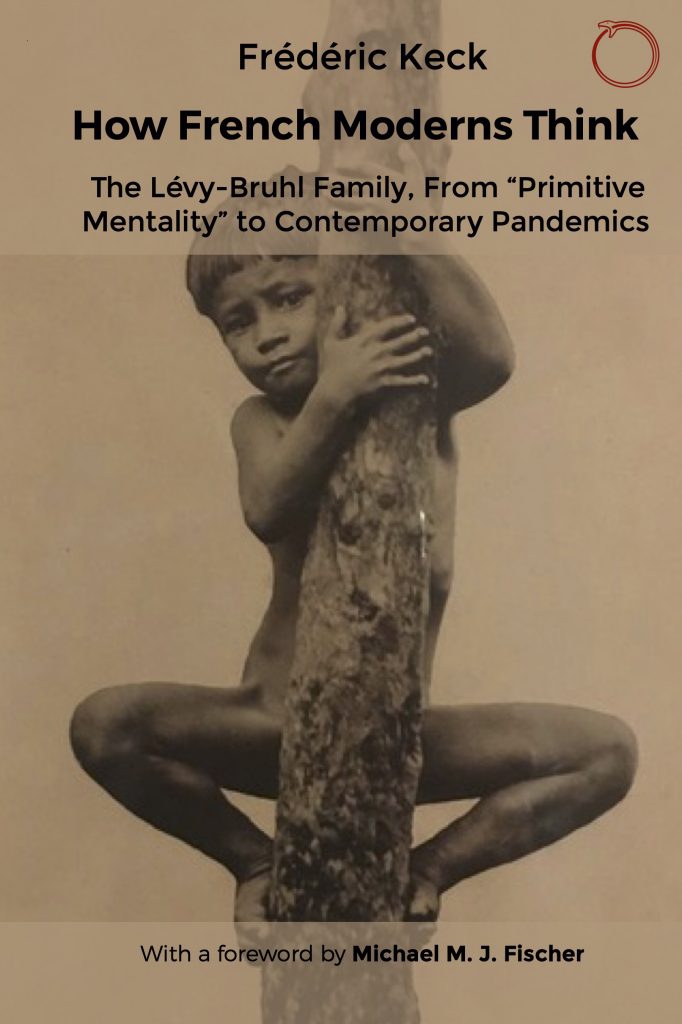The Lévy-Bruhl Family, From “Primitive Mentality” to Contemporary Pandemics
By Frédéric Keck
With a Foreword by Michael M. J. Fischer
How French Moderns Think tells the story of the French sociological tradition through four generations of the Lévy-Bruhl family: Lucien, who founded the Institute of Ethnology at the University of Paris; his son Henri, who founded the Institute of Roman Law; his grandson Raymond, who took part in the creation of the National Institute of Statistics and Economic Studies; and his great-grandson Daniel, a vaccine specialist at the Institute of Public Health. This family history casts a new light on the philosophical debates about “primitive mentality” and the “savage mind.” By drawing on the expert knowledge inherent in this family genealogy, the articulation between the logical and the “pre-logical” is not a cognitive question but rather a problem of anticipating unpredictable events. By relating Lévy-Bruhl’s engagements from the Dreyfus Affair to the Minister of Armaments during the First World War, Keck narrates the confrontation of the socialist ideal of justice and truth with the French colonial experience and its transformations in global technologies preparing for pandemics.
“Keck’s book is a breath of fresh air. He is willing to explore the depth of the issues raised by Lévy-Bruhl in the rise of sociology and anthropology after the Dreyfus Affair and the struggle against French anti-Semitism, and to go beyond terminological allergy towards the concepts of “primitive” and “mentality.” The argument that French social scientists have tried to understand catastrophic and “unpredictable” events highlights the insufficiency of a social scientific thought that restricted itself to modern conceptions of rationality and logic, and is increasingly important in today’s era of pandemics and global warming.”
— Ghassan Hage, author of Alter-Politics: Critical Anthropology and the Radical Imagination
“With a dizzying abundance of references, Keck demonstrates the breadth and versatility of Lévy-Bruhl’s interests. These placed him at the intersection of different fields of investigation, reflection and action, not only as a central intercessor at the crossroads of philosophy and the social sciences (still in the making at the time), but also of medicine and public health issues, which led him to take charge of a real politics of knowledge.”
— Pierre Macherey, author of Hegel or Spinoza
“Keck gives us a profound re-reading of Lucien Lévy-Bruhl’s life-long quest for ‘another thought’ in the pursuit of an affective logic of signs and community, a knowledge by sentiment, which is also a semiotic of the accident – different from that of the state and its symbols – and entangled with the torn history of the French Third Republic, the Dreyfus trial, and the rootlessness of French colonial violence. Retracing the larger historical tapestry within which the realization of such a knowledge by sentiment could unfold, Keck stresses the border figure of “the sentinel,” a contingent being in between worlds, pointing us to the always uncertain possibilities of other futures and lives.”
— Stefania Pandolfo, author of Knot of the Soul: Madness, Psychoanalysis, Islam
“In How French Moderns Think, Keck draws a Lévy-Bruhl family portrait composed of generational commitments to better understanding the social and political order for the purposes of training attention and preparedness—again, vigilance—in the face of a world that had already proven it could fall apart.”
—Todd Meyers, History of Anthropology Review
Frédéric Keck is a Senior Researcher at CNRS, author of Avian Reservoirs: Virus Hunters and Birdwatchers in Chinese Sentinel Posts as well as several books in French, and coeditor of The Anthropology of Epidemics.
Michael M. J. Fischer, Professor of Anthropology and Science and Technology Studies at MIT, and Lecturer in the Harvard Medical School, has profoundly shaped contemporary anthropological thought. His influential works include Anthropology as Cultural Critique (with George Marcus), Emergent Forms of Life and the Anthropological Voice, and Anthropological Futures.
© HAU Books, 2023
6″ x 9″| 8 halftones | 280 pp.
$30
Contents
Works by Lucien Lévy-Bruhl
Works by Henri Lévy-Bruhl
Works by Marcel Lévy-Bruhl
Works by Raymond Lévy-Bruhl
Works by Daniel Lévy-Bruhl
General References
The open-access PDF of this book, attached above, is made available by Hau Books through a Creative Commons license BY-NC-ND 4.0 International (Attribution Required / Non-Commercial Use / No Derivatives). Additional rights clearance may be necessary for third-party content within.
